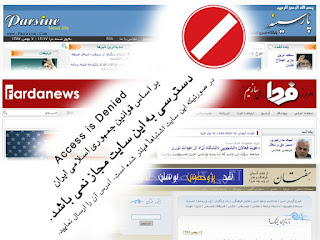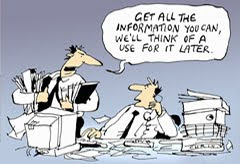What are Open Proxies ?
Open proxies are servers that can be accessed by anyone to anonymously route their internet traffic. They are often used to bypass local restrictions or to hide a user’s real IP address. They can also be used for activities such as web scraping and online fraud.
Can the Proxies Be Used to Help Protect People
Well, they have been, in many, many countries. In Iran there is a fevered search for proxies to use, as the Government tightens their grip on free access to the Internet. Many countries which apply a dictatorial approach to internet access are often not terribly advanced in their methods.
However, in Iran they have followed and improved on the Western government’s way of snooping on their citizens. In the West, European and US legislation is used to force the ISPs to store our data and internet logs – so they can be accessed when required.

In Iran they have gone one stage further, they actively control the ISPs, which means that in effect that all the internet users of Iran have to pass their data through their government hands.
Now thankfully for some, these techniques are not that sophisticated – throttling bandwidth speeds down to discourage video and media transfers is hardly high tech. Censorship is largely controlled manually using top level domain names, social networking sites such as twitter, Facebook are obvious targets.
But as James Cowie put it in his article The Proxy Fight for Iranian Democracy (sorry link inactive now, March,2023) –
If you put 65 million people in a locked room, they’re going to find all the exits pretty quickly, and maybe make a few of their own.
Rather well put I thought, and it is indeed true, but as the article illustrates. Most of this escaping is taking the rather primitive method of using random open proxies to bypass these filters.
Using Open Proxies Online
There are two main issues in my mind regarding this –
- Public Open Proxies are that – well public and open, get blocked rather easily. Like content filters which many firms use to block access at your workplace, it’s rather simple to get someone to add lists of these proxies which are also blocked. Publicly available proxies don’t last long wherever they are when the word is spread across the internet. The proxy finding tools which produce lists of these public proxies can be used just as easily by Iranian censors.
- Perhaps more worrying, from the tales of brutality and torture – if you control the ISP then you have access to all the data passing out from your citizens. Here we are all in the same boat, our ISP knows everything we do online, everywhere we go and everything we download. Every Government knows this, and has put its own laws, policies and procedures in place but in Iran it may be even more worrying.
The power of an ISP to spy on its users, is almost complete, the Iranians can identify who are using these proxies, they can identify when someone uploads media to a social networking site – just as any ISP can anywhere in the world.
I use a system which prevents this monitoring as my web browsing is encrypted as well, but it could be argued that in somewhere like Iran that might be just as dangerous, the authorities wouldn’t know what I was doing but they might just check on who they couldn’t monitor.

Of course, what we really should do is stop all our governments having access to these ISPs and ISP logs but alas it’s already too late in most countries and I include Europe and the US in that statement, perhaps proxies, open proxies and encryption are our only hope!
Profit Maximization and Control
The real driver for the use of proxies online is actually not state or government censorship but avoiding restrictions based on commercial websites. The internet is of course, potentially open to everyone, yet this doesn’t fit in with most profit-making models. Price discrimination is the practice of charging different prices depending on your location. So, you’d charge more in wealthier countries and bring prices down to sell in less developed areas. Obviously annoying if you have to pay more just because of where you live.
The way to bypass these restrictions is to use a proxy server based in a specific location to hide your true location. So, a user from the US could use a UK proxy server to access UK based sites for example.
What is Geotargeting?
Geotargeting is the practice of delivering content or advertisements to a specific audience based on their geographic location. It uses the geographical data of users, such as their IP addresses or GPS coordinates, to determine their location and tailor the content or ads accordingly. This allows businesses to target specific regions or areas with relevant and customized messages, improving the effectiveness and relevance of their marketing efforts. Geotargeting can be used for various purposes, including localizing content, optimizing ad campaigns, and providing location-specific offers or information to users.